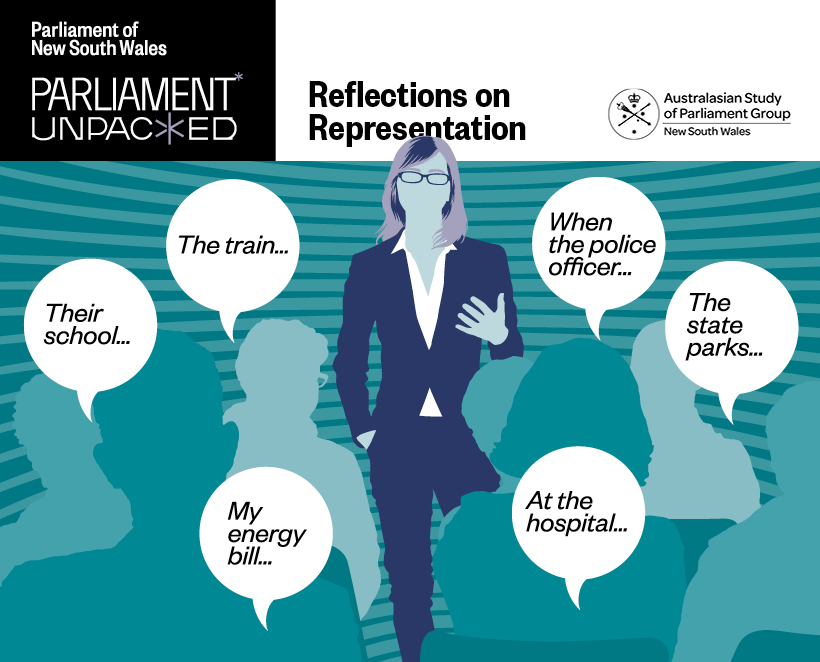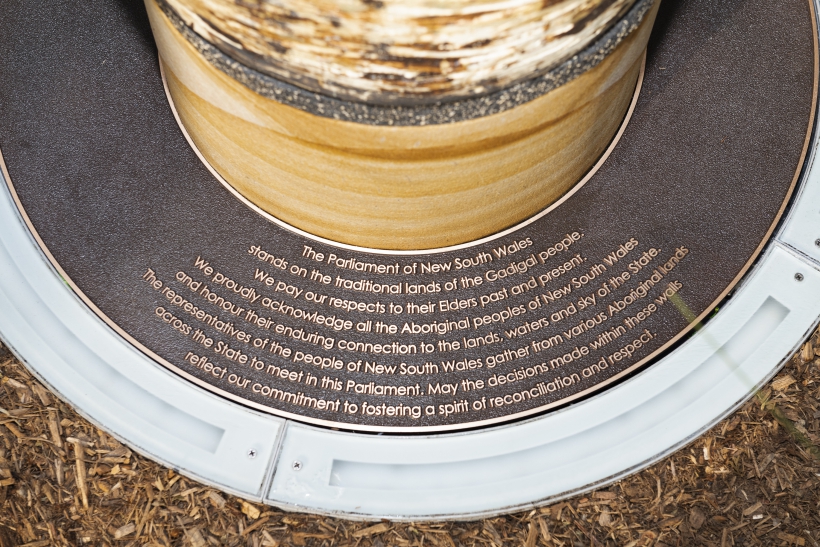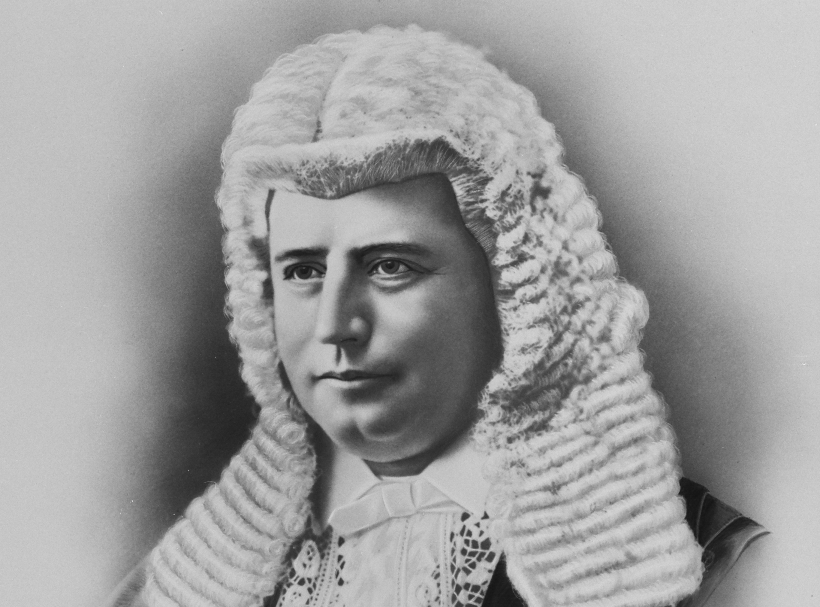
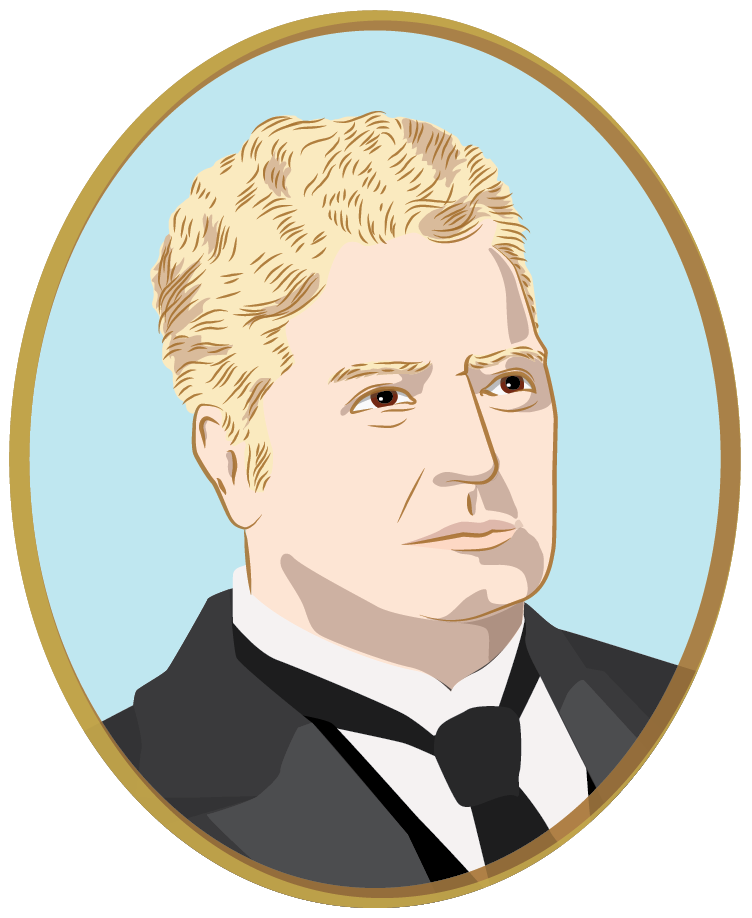 What better way to open 2021 than with an anniversary. Edmund Barton was born 172 years ago this January and his legacy in our democracy still looms large.
What better way to open 2021 than with an anniversary. Edmund Barton was born 172 years ago this January and his legacy in our democracy still looms large.
Edmund Barton began his life in politics here at the Parliament of NSW where he was:
- A member of Legislative Assembly (as member for East Sydney, Wellington, Hastings and Macleay, University of Sydney), 1879 – 1887
- A member of the Legislative Council, 1887 – 1891 and 1897 – 1898
- Attorney General 1889, 1891 – 1893
- Speaker of the Legislative Assembly, 1883 – 1887
He is remembered for his fair decisions and implementing new standing orders to discipline members when he was Speaker (pictured above).
Few politicians have managed to escape the ire of the media with Barton cruelly coined ‘Toby Tosspot’, by the Bulletin magazine.
He played a key role in achieving Federation. On 8 October 1890, in the NSW Legislative Council, Barton made a moving speech that convinced New South Wales to participate in the Australasian Federal Convention in Melbourne and hence become the nominated delegate for the following year.
Barton, like Henry Parkes from NSW and Andrew Inglis Clark from Tasmania believed that Federation was the solution to the rivalry between the colonies over trade and in 1896 after Henry Parkes died, Barton took over as “leader” of Australian Federation.
Can you spot Edmund Barton in the below image form the 1891 convention?
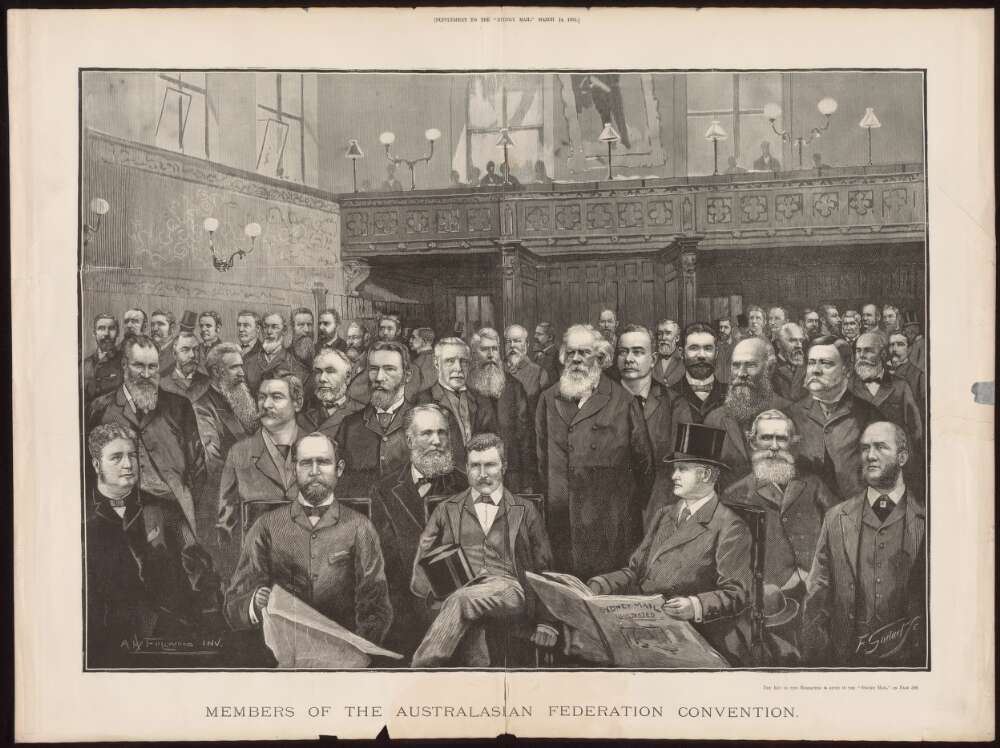
Members of the Australian Federation Convention 1891, Godart F. National Library of Australia.
Barton is famously known for saying:
“For the first time in history, we have a nation for a continent and a continent for a nation”,
at a rally of the Federation of the Australian Colonies in Ashfield in 1897. We officially became that nation four years later and he became its first Prime Minister.
To achieve nationhood several steps had to take place before it could happen.
- A Constitution Bill had to be agreed by the convention delegates elected by each colony in 1897.
- It was then debated in each of the six colonial Parliaments.
- When each Parliament passed the bill, it faced six more hurdles – final referenda of the voters in each colony, held between June 1899 (New South Wales) and July 1900 (Western Australia).
- And last but not least we had to achieve the approval of the British Parliament of the proposed constitution and the approval of the Queen.
To do this Barton went to England and lobbied for three months through the House of Commons and the House of Lords to get the final enactment on 9 July 1900, after which the Queen Victoria proclaimed 1 January 1901 the date the new nation would be born.
It was a remarkable journey to becoming the Australian nation, one where the people decided to join together to finally become a single nation. Learn more on our dedicated Federation and the Constitutional Conventions Page.
Edmund Barton is on the curriculum for NSW Year 5 and 6 students.
Teachers can get resources to teach Edmund Barton here
Students can learn about him here

